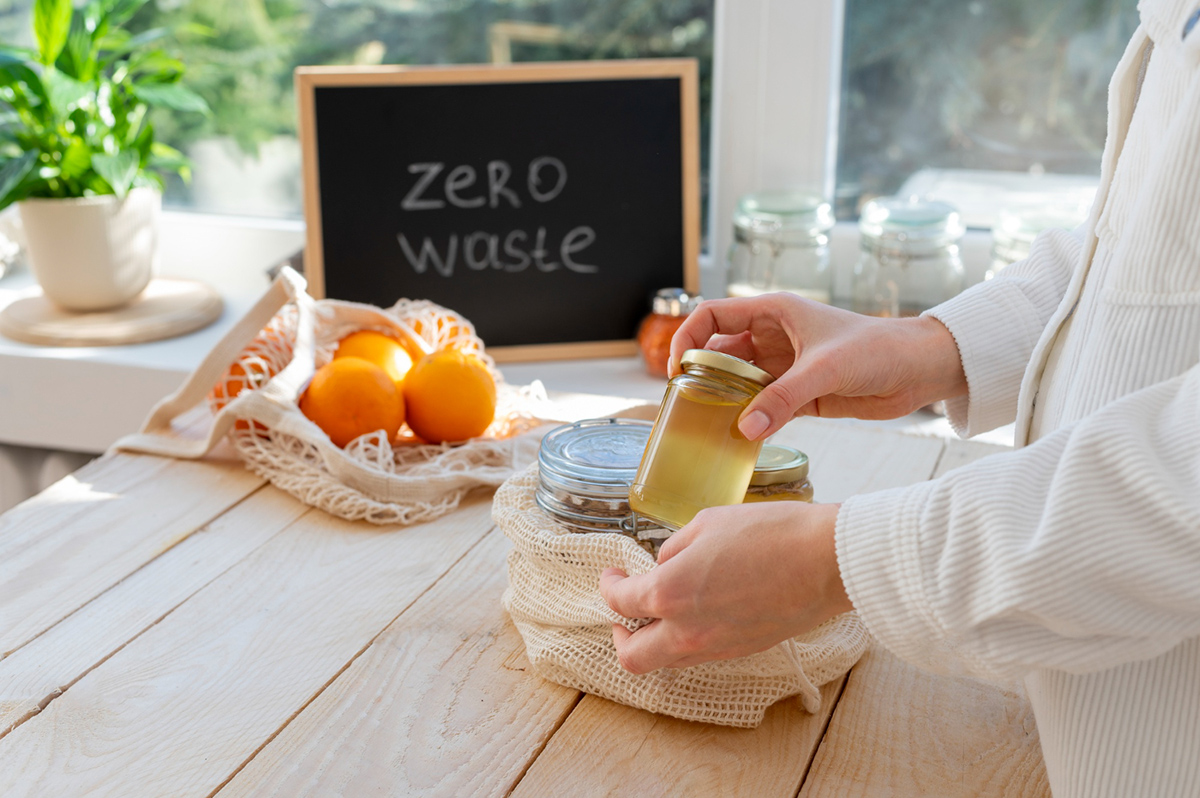How to Achieve a Zero-Waste Kitchen

As we become increasingly aware of how our daily routines impact the environment, more people than ever are looking for ways to lessen their waste and carbon footprint. One area where we generate a lot of waste is the kitchen, but there are many ways to make your kitchen more sustainable and eco-friendly. In this blog post, we'll cover some tips and tricks to help you achieve a zero-waste kitchen.
1. Reduce your grocery packaging
Shopping for groceries can generate a massive amount of waste, most of which is packaging. Try to buy items with minimal packaging, such as fruits and vegetables that are sold loose. You can also bring your reusable bags, jars, or containers to the store to avoid using plastic bags and containers. Another great way to reduce waste is to buy in bulk, which can help minimize packaging and save you money in the long run.
2. Use composting and recycling
Recycling and composting are key components of a zero-waste lifestyle. Check with your local government to see what recycling and composting programs are available in your area. Even if you don't have a municipal composting program, you can compost at home with a simple compost bin or compost tumbler. Composting your kitchen scraps and yard waste is a great way to reduce the amount of organic waste that ends up in landfills, where it produces greenhouse gases.
3. Cook from scratch
Cooking from scratch not only tastes better, but it can also help reduce waste. When you cook from scratch, you can control the ingredients you use, which can help reduce packaging waste. You can also buy ingredients in bulk, which minimizes the amount of packaging you need to dispose of. Plus, you can also avoid the waste generated by takeout containers, plastic cutlery, and various other food service packaging.
4. Use reusable products
Switching to reusable products is a simple yet effective way to cut down on waste. Instead of using paper towels, use washable kitchen towels. Try to avoid using single-use plastic items such as straws, utensils, and water bottles. Instead, use reusable alternatives such as a stainless steel straw, bamboo utensils and a reusable water bottle. Another great way to reduce waste is to use eco-friendly cleaning products. Instead of using cleaning wipes or sprays that come in plastic bottles, try using a reusable cloth and a natural cleaner like vinegar or baking soda.
5. Donate or repurpose unwanted items
When you come across items in your kitchen that you don't need or that no longer spark joy, consider donating them to a local charity or thrift store. This will keep them out of landfills and give them a new lease on life. You could also look into repurposing items you no longer need, such as turning old dish towels into cleaning rags, or making a planter out of a coffee can.
Conclusion
Achieving a zero-waste kitchen may seem like a daunting task, but with some simple changes and habits, you can make your kitchen more eco-friendly and sustainable. The tips and tricks we've covered in this blog post are just the beginning. Get creative and keep experimenting with new ways to reduce waste and live a more environmentally conscious lifestyle. Remember, every small step counts- start with just one of the strategies covered here and see the difference it makes to both your kitchen and the environment. If you are looking for apartments for rent in Fort Myers, FL, contact The Robert Apartments today to schedule a personal tour.